Bone in Prime Rib and Angus Beef Bone in Roast
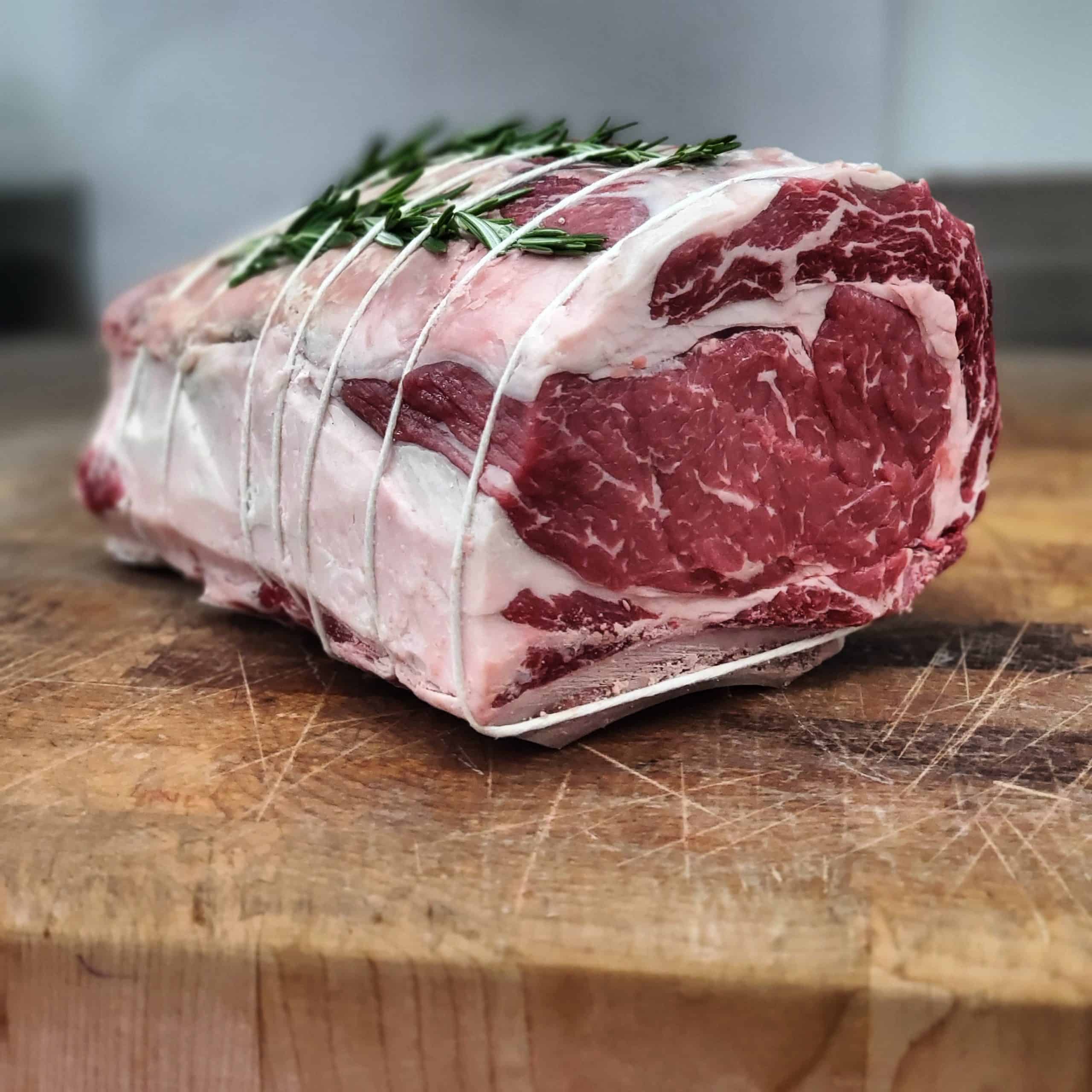
The Prime Rib Roast itself is even older than the USDA grading system of Prime, Choice, Select, etc. The grading system actually took the name from this "Prime" cut of beef. Working at the butcher shop around the holidays, we are constantly bombarded with calls about Prime Rib. We hear this question a lot, "Is your Prime Rib actually Prime? Or is that just the name?." There are two meanings behind the word Prime in this case.
- Prime (USDA Definition)- "is produced from young, well-fed beef cattle. It has abundant marbling and is generally sold in restaurants and hotels. Prime roasts and steaks are excellent for dry-heat cooking (broiling, roasting, or grilling)." This is referring to the quality of the steer and all of the cuts within the animal. This prestigious grade accounts for only 2% of beef in America.
- Prime (Prime Rib)- This is referring to the prized cut between the 6th and 12th rib. This can be of any grade; Prime, Choice, Select or even Standard can be referred to as Prime Rib.
While we sell both Choice & Prime at our retail location, we only have the Prime grade available online.
What's the difference between Prime & Choice?
The difference is based on a few different factors. It is primarily determined by the amount of intramuscular fat found in the Ribeye muscle at the 12th rib cross section. In other words, it all comes down to marbling. Marbling is the tiny white flecks of fat that appear within the meat. Marbling is not the fat cap around the steak but is only the tiny strands of white within the muscle.
Prime
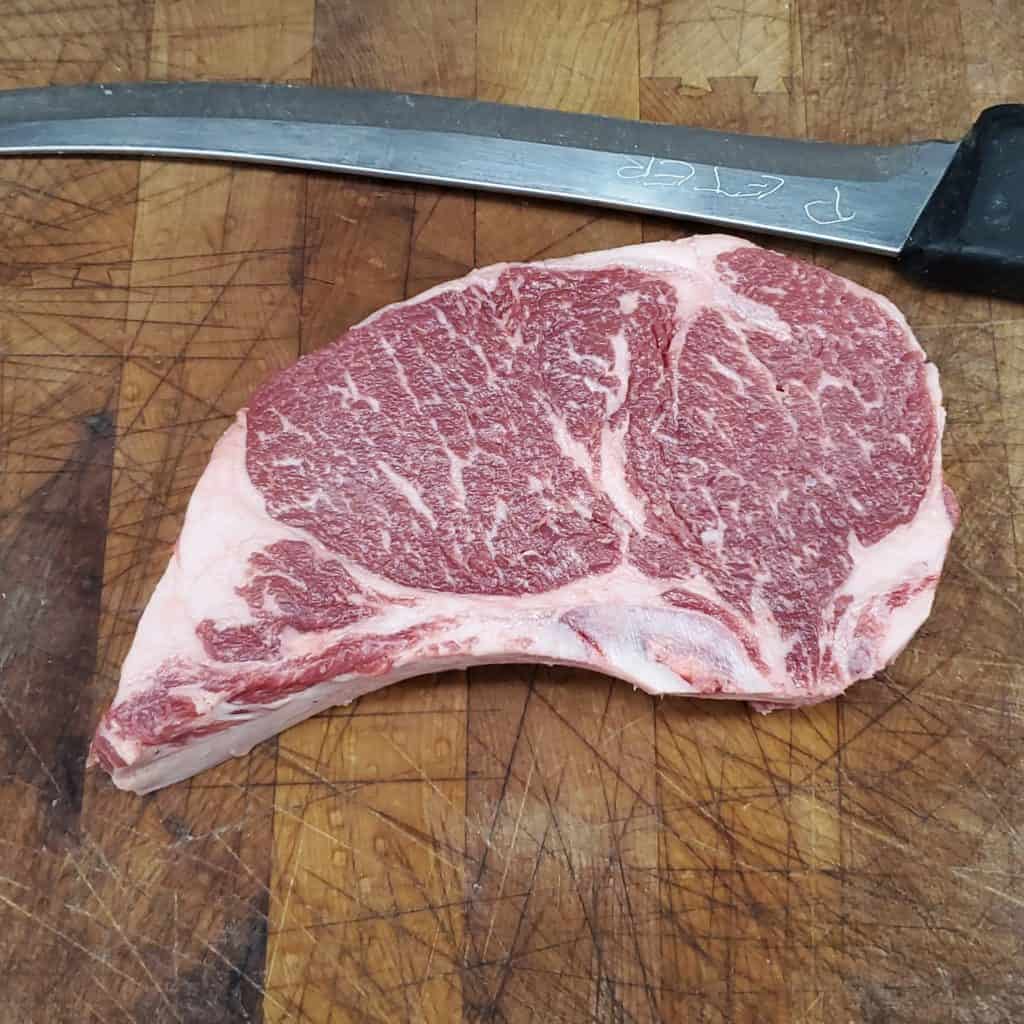
Choice
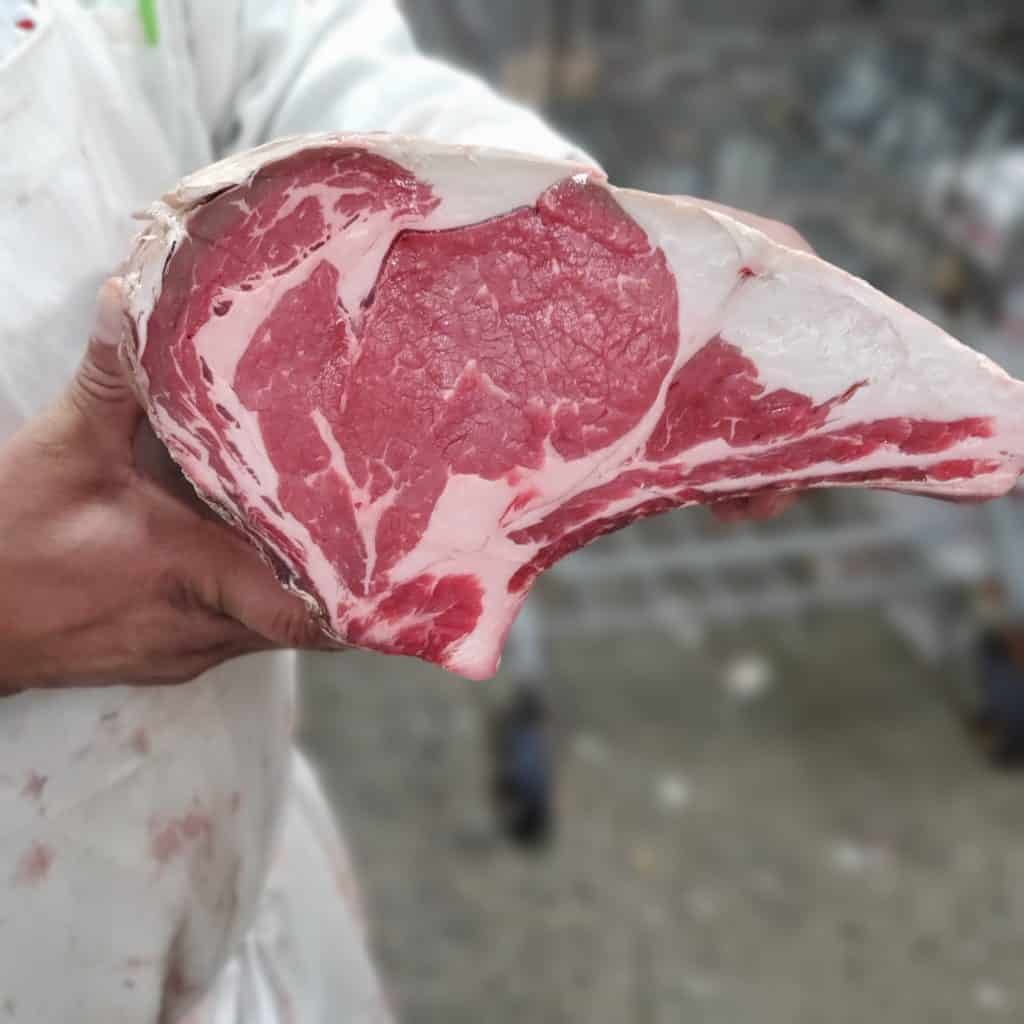
As you can see above, the difference between Prime & Choice can be a subtle one to detect. This difference has a bigger impact on the tenderness and juiciness of the meat. Marbling is what makes all the difference to the taste buds.
USDA PRIME DRY AGED BONE-IN RIB ROAST
Dry Aged Prime Rib for Sale
Discover dry aged prime rib for sale at Vincent's Meat Market.
Prime rib is the king of beef roasts and an excellent choice for festive occasions. This prime rib roast is well-marbled and well-aged, and it is as impressive and delightful as it is flavorful and tender. By default, we cut the bones and re-tie them onto the roast.
This angus steer cut of meat will deliver more flavor than any other beef. The dry aging will give the steak a rich and unique flavor profile. Our dry aging process involves placing this incredible cut of meat on the dry rack for several weeks. During this time, this allows the moisture to evaporate from the muscles, delivering a higher level of flavor.
At Vincent's Meat Market, we've been supplying the meat industry with quality prime rib for sale for nearly 70 years. Located on 187th street in the Bronx, there is no better place than Vincent's Meat Market to purchase USDA prime roast.
Grab your dry-aged prime rib roast for sale from us today.
$137.23 – $480.31
How Much Prime Rib Per Person?
Now that we know what we are looking for, let's figure out how much we'll need. If the Prime Rib is part of a holiday, buffet-style meal, you will need about 1/2 lb. per person. If the roast is the main course, I would aim for about a 1 lb. per person.
In addition, you can use an app to find weight and cook time. Roast Perfect by Certified Angus Beef LLC is very helpful and easy to use. Simply enter how many people you are hosting and they will tell you the weight. Users can also sift through different recipes and even get the cook times for all sorts of different roasts with their roast timer.
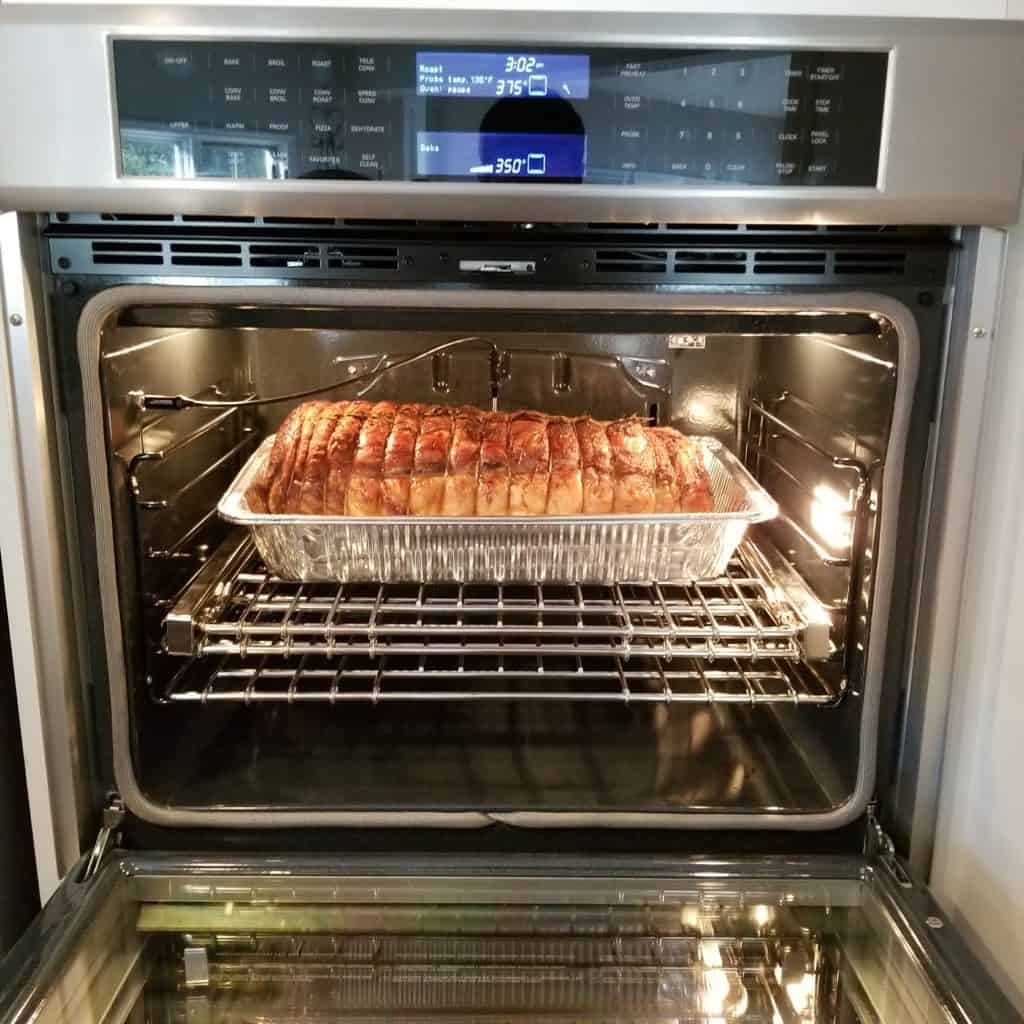
Cooking a Bone-In Prime Rib Roast
- Let the Prime Rib Roast sit for about 2 hours at room temperature
- Preheat Oven to 450 Degrees
- Season all sides of the Standing Rib Roast generously with Salt, Pepper, Garlic, and Thyme. Some recipes call for butter with this mixture.We think the Prime Rib doesn't really need it. We use Seasonello ; a good mix of Sea Salt, Rosemary, Garlic, Sage, and Pepper. After, we add some Thyme to it as well.
- Place in center of Roasting Pan with a rack
- Roast at 450 degrees for 15 minutes
- Reduce to 325 degrees for approximately 2 hours (Check with a meat thermometer for desired doneness).
- Remove from oven, tent with foil and wait 15 minutes for those juices to redistribute. Slice Rib Roast and Serve! Buon Appetito!
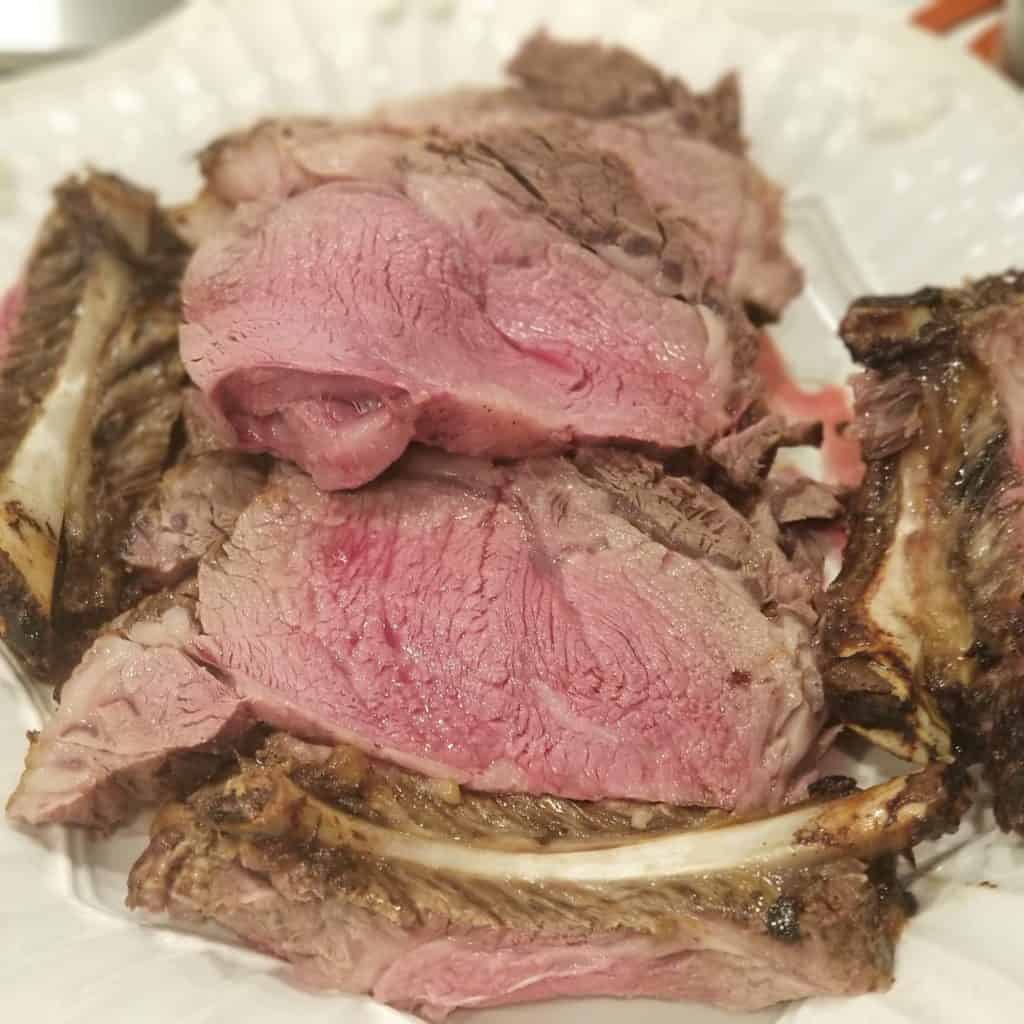
Rib Roast Temperatures
While the Roast Perfect app can help with the timing and the doneness we always recommend using a meat thermometer.
- Rare: 120-125°F – Bright red interior
- Medium Rare: 130-135°F – Pink on the outer crust with a deeper red center
- Medium: 135-140°F – Mauve/light pink colored interior
- Well-done: 145°F+ – Brown, no pink
Best Tips for Cooking A Prime Rib Roast
- Use the right pan- Make sure you are using a roasting pan with a rack. This will help with even browning of the roast on all sides and makes removing it from the oven easier.
- Let it sit before cooking- This is often an overlooked step but the roast should be at room temperature before you begin cooking.
- Let it rest after cooking- This time is crucial to the coloring and juiciness of your roast. This allows the juices to redistribute bringing that color through the whole roast. If you cut too early you could end up with a dryer roast.
- Cutting- Always cut the roast against the grain.
Source: https://vincentsmeatmarket.com/2019/12/18/how-to-cook-the-perfect-prime-rib-standing-rib-roast/
Post a Comment for "Bone in Prime Rib and Angus Beef Bone in Roast"